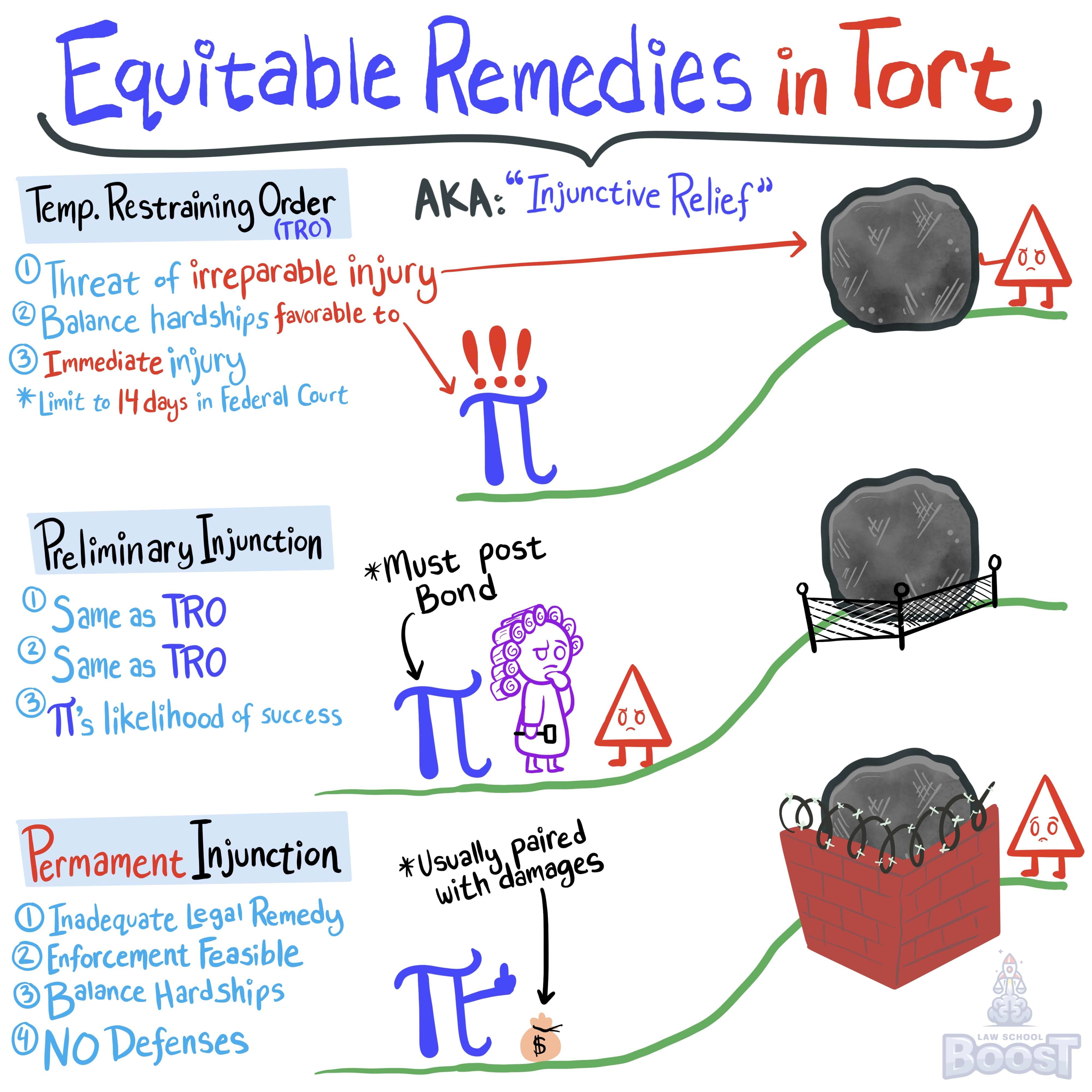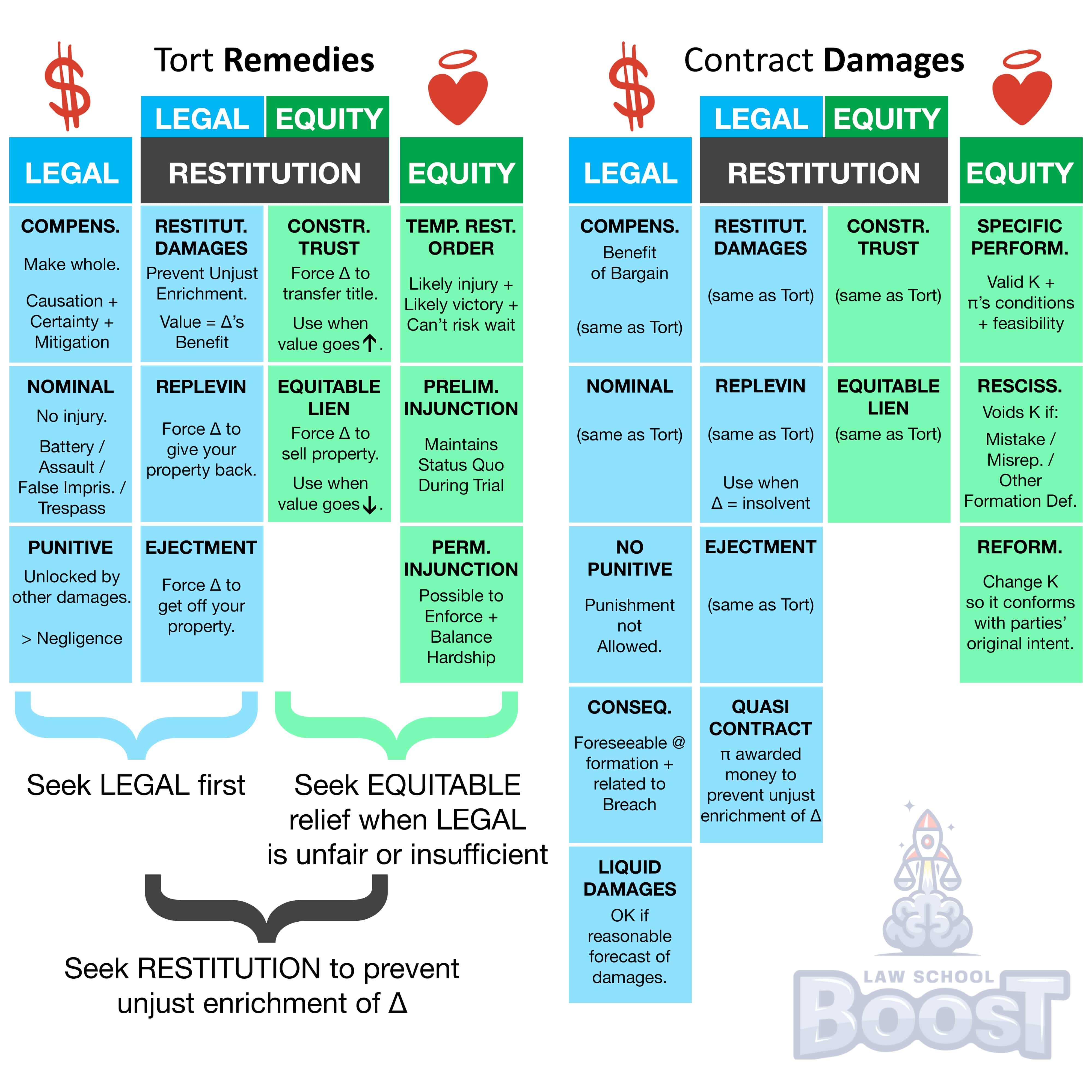🏥
Remedies • Tort - Equitable Remedies
REM#022
Legal Definition
Equitable remedies in tort consist of injunctive relief, wherein a defendant is ordered to do or refrain from doing something.
Plain English Explanation
Equitable remedies in tort are legal solutions that don't involve money. Instead, they involve a court telling someone (the defendant) to either do something or stop doing something. This is called "injunctive relief." The purpose of this rule is to fix a situation where money alone can't solve the problem. For example, if someone is doing something that harms you, and they won't stop, the court can order them to stop. This rule exists because sometimes, just paying money isn't enough to make things right.
Imagine you have a neighbor who plays loud music every night, and it's stopping you from sleeping. Instead of asking them to pay you money for the trouble, you just want them to turn the music down. Equitable remedies in tort are like that. It's when the court tells someone to do something or not do something. So, in this case, the court might tell your neighbor to stop playing loud music.
Imagine you have a neighbor who plays loud music every night, and it's stopping you from sleeping. Instead of asking them to pay you money for the trouble, you just want them to turn the music down. Equitable remedies in tort are like that. It's when the court tells someone to do something or not do something. So, in this case, the court might tell your neighbor to stop playing loud music.
Hypothetical
Hypo 1: Bob has a machine in his backyard that makes a lot of noise day and night. Sam, his neighbor, can't sleep or work because of the noise. Sam asks Bob to turn it off multiple times, but Bob refuses. Sam sues Bob. Result: The court will likely order Bob to turn off the machine or move it somewhere else where it won't disturb Sam. This is an example of injunctive relief, where Bob is told to stop doing something that's harming Sam.
Hypo 2: Bob and Sam get into an argument. Bob loses his temper and breaks Sam's phone. Sam is upset and wants Bob to pay for the damages. Result: The court orders Bob to pay Sam the money for the phone. This situation doesn't involve injunctive relief because Sam is asking for money, not for Bob to do or not do something specific.
Hypo 2: Bob and Sam get into an argument. Bob loses his temper and breaks Sam's phone. Sam is upset and wants Bob to pay for the damages. Result: The court orders Bob to pay Sam the money for the phone. This situation doesn't involve injunctive relief because Sam is asking for money, not for Bob to do or not do something specific.
Visual Aids


Related Concepts
What are the defenses to a suit seeking injunctive relief?
What is a preliminary injunction and how is it issued?
What is a temporary restraining order ("TRO") and what is required to get one?
What is contempt?
What is the collateral bar rule?
What parties are bound by an injunction?
When assessing a permanent injunction, how do courts balance hardships?
When assessing defenses to a lawsuit seeking injunctive relief, when are unclean hands applicable?
When assessing defenses to a lawsuit seeking injunctive relief, when is impossibility applicable?
When assessing defenses to a lawsuit seeking injunctive relief, when is laches applicable?
When deciding on a permanent injunction, when may ejectment be inadequate?
When deciding on applying a permanent injunction, when may money damages be inadequate?
When may replevin be inadequate as a remedy and, instead, a court will opt for a permanent injunction?
When will a court issue a permanent injunction?


